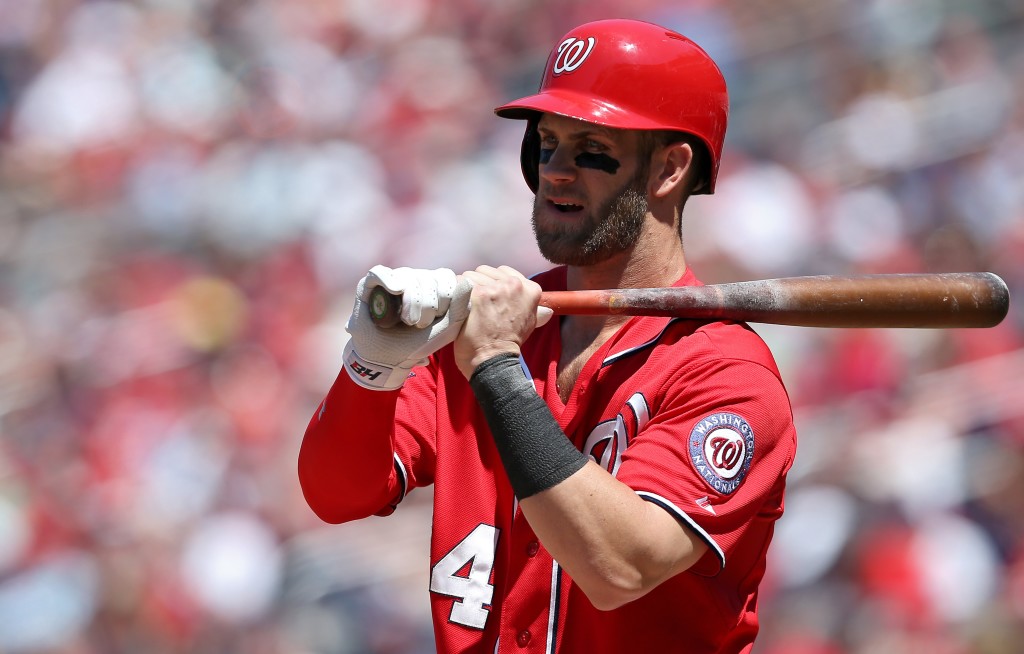Written by Pablo Figueroa at Sporting Charts
If you’ve browsed around enough baseball articles over the Internet, you will be very familiar with the fact that baseball makes it very difficult to agree in a large number of matters. Despite the endless efforts to create stats and analytics that can standardize how the sport is measured, its nature is perfect to create debate, discussion, and controversy. Remember that this is a sport where not even Babe Ruth was considered a unanimous choice for the Hall of Fame, so it is always kind of surprising when we can find consensus.
Just a couple of days after Cubs’ third baseman Kris Bryant was voted NL Rookie of the Year in unanimous fashion, the NL voters again showed a unified voice by selecting Bryce Harper as the league’s MVP, also earning 100% of the first-place votes. By achieving this, Harper became the youngest unanimous MVP in baseball history, and crowned his full potential in what was his fourth full season in the league, all at the tender age of 22.
Despite his Nationals being a disappointment that missed the playoffs by a mile, the voters had no way to deny Harper’s historic season, which included finishing first in Wrc+ by 25 points, slugging .649, while also leading the NL in homers, runs, and OBP. Harper’s season can now be considered as one of the best of baseball’s modern era, rivaling some of the best years of Barry Bonds. Also, by earning a unanimous nod as the MVP, he has joined a special club of select players who had the same level of domination and voter recognition.
Tracing back to the origins of the MVP award, some historic players were able to win unanimous nods, like Ty Cobb in 1911 and Babe Ruth in 1923. Hank Greenberg also did it in the AL in 1935, while the first time it happened in the NL was for Carl Hubbell in 1936. During the 50’s and 60’s, it became a more frequent sight, as it was accomplished by Al Rosen (1953), Mickey Mantle (1956), Frank Robinson (1966), Orlando Cepeda (1967), and Denny McLain (1968). Post 1970, unanimous MVP’s have been a bit more spaced out, with Harper becoming only the 11th player in this span to earn such a distinction.
The previous 10 have been mostly some of the most defining and important players in modern baseball history, so how does Harper’s consensus MVP rank against them? Today we take a look at the exclusive club joined by Bryce Harper, and how each special season was achieved.
To continue reading this article, click here




